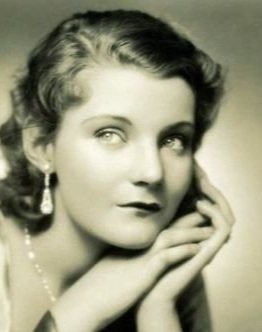
Helen Chandler: Picon Citron
In the original or at least the first American sound version of Dracula (1931), Bela Lugosi spends a sizable portion of the film after Helen Chandler’s blood, and his pursuit of her seems more than a little misguided. Was there ever a screen performer who looked as snow white as Chandler, as anemic, as small and bloodless? She was a petite blond, a wraith, and her blue eyes were almost white in their starkness, too, so that she always seemed to be looking inward instead of out, and those small inward eyes of hers could have an unnerving quality that suits the buggy but creaky horror of this Dracula. Chandler speaks in a strained, chirping voice, and she’s very intense. Who is she, and why does she stare like that?
She was born in South Carolina, and her Southern accent comes out sometimes on screen, especially in her last film, Mr. Boggs Steps Out (1938), where her distinctively belle-like volatility makes her seem kin to Miriam Hopkins. In the 1920s, Chandler built herself an impressive career on Broadway, playing with John Barrymore in Richard III, Lionel Barrymore in Macbeth, and then as Hedvig in Ibsen’s The Wild Duck and as Ophelia in a modern dress Hamlet. Hedvig goes blind and Ophelia goes mad, and both of these extremes must have suited Chandler’s birdlike imperturbability, her sense that she lived entirely in her own world. She was a leading lady for John Ford in Salute (1929), and then she made an impact as one of the lost people on board a floating ship of the dead in Outward Bound (1930), which looks as creaky today as Lugosi’s Dracula does.
The prime year for Chandler in films was 1931. After Dracula, she played opposite Ramon Novarro in Jacques Feyder’s Daybreak, a movie where she’s asked to do an extended drunk scene: “I want another one!” she cries, when it’s clear that she’s had more than enough booze, and then when Novarro obliges, Chandler insists on “a full one.” And so when Chandler played Nikki in her finest film, William Dieterle’s The Last Flight, she had some practice with drinking on screen for one of the all-time best boozing movies and one of the all-time best romantic group movies.

